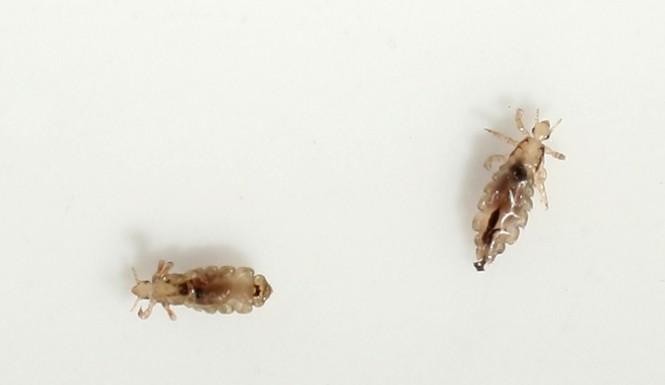-
Tips for becoming a good boxer - November 6, 2020
-
7 expert tips for making your hens night a memorable one - November 6, 2020
-
5 reasons to host your Christmas party on a cruise boat - November 6, 2020
-
What to do when you’re charged with a crime - November 6, 2020
-
Should you get one or multiple dogs? Here’s all you need to know - November 3, 2020
-
A Guide: How to Build Your Very Own Magic Mirror - February 14, 2019
-
Our Top Inspirational Baseball Stars - November 24, 2018
-
Five Tech Tools That Will Help You Turn Your Blog into a Business - November 24, 2018
-
How to Indulge on Vacation without Expanding Your Waist - November 9, 2018
-
5 Strategies for Businesses to Appeal to Today’s Increasingly Mobile-Crazed Customers - November 9, 2018
Yikes! Super-Strains of Lice Spread to 25 States
The itch-inducing pests lead to missed school days and frustrated parents, who could have even more reason to be wary of the bug this year.
Advertisement
“You can use more product to kill the insect”, Yoon said in an interview with Healthline.
Lice populations in the pink states have developed a high level of resistance to some of the most common treatments, a study finds.
Pyrethroids are a family of insecticides used widely indoors and outdoors to control mosquitoes and other insects.
Pyrethroids involve permethrin, which is utilized in the most common drug-store remedies of parasites, a release pointed out.
Dr Yoon said that the momentum toward widespread pyrethroid-resistant lice has been building for years. The first report on this development came from Israel in the late 1990s.
“Lice don’t have wings, and they don’t jump, so they move where people move”, Yoon said. “Olive oil, mayonnaise, gasoline, these are all treatments I wouldn’t recommend”, she said.
The researchers found lice with genetic mutations that increase their resistance to pyrethroids in 25 states, including California, Texas, Florida and Georgia. Having all three mutations means these lice populations are the most resistant to pyrethroids. Since then, he has expanded his survey.
The study found that of the head lice samples collected across 30 states, all but five showed signs of a very high level of resistance to pyrethroids – the chemicals contained in some of the most common over-the-counter treatments. Michigan was the only state where lice hadn’t developed resistance.
The resistant lice can be treated with different chemicals, but some are only available by prescription.
But he added: “If you use a chemical over and over, these little creatures will eventually develop resistance”.
The National Pediculosis Association warns that if a lice treatment doesn’t work, parents should stop using it, and should not use any other product to avoid exposing the child to too many pesticides.
He had been working on insecticide metabolism in the potato beetle, when John Clark, Ph.D. a professor of veterinary and animal sciences at the University of Massachusetts, suggested he examine the resurgence of head lice. While lice are a nuisance, the American Academy of Pediatrics say they’re not a health hazard and an infected child shouldn’t be kept home from school.
Advertisement
The study on lice populations across the United States will be presented at a meeting of the American Chemical Society in Boston this week.





























